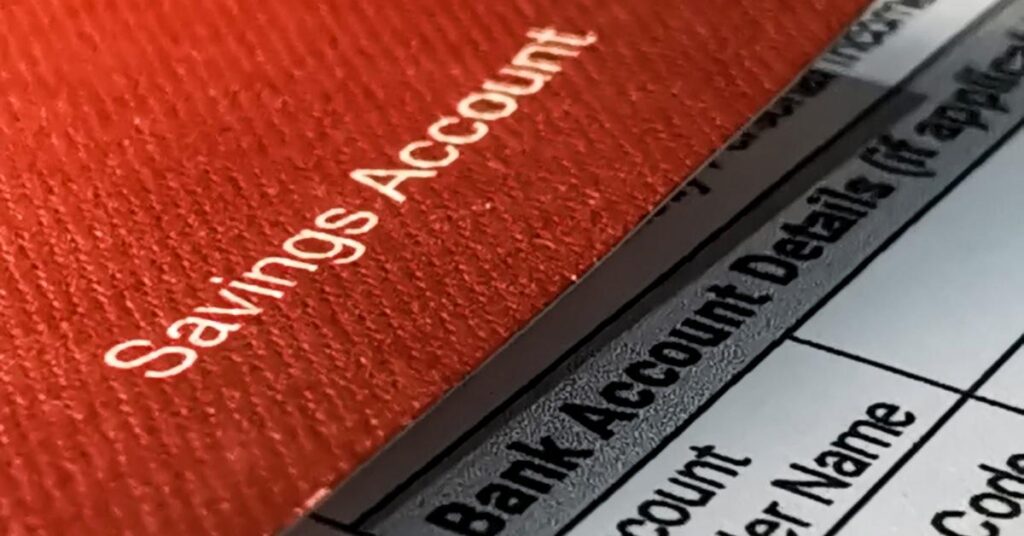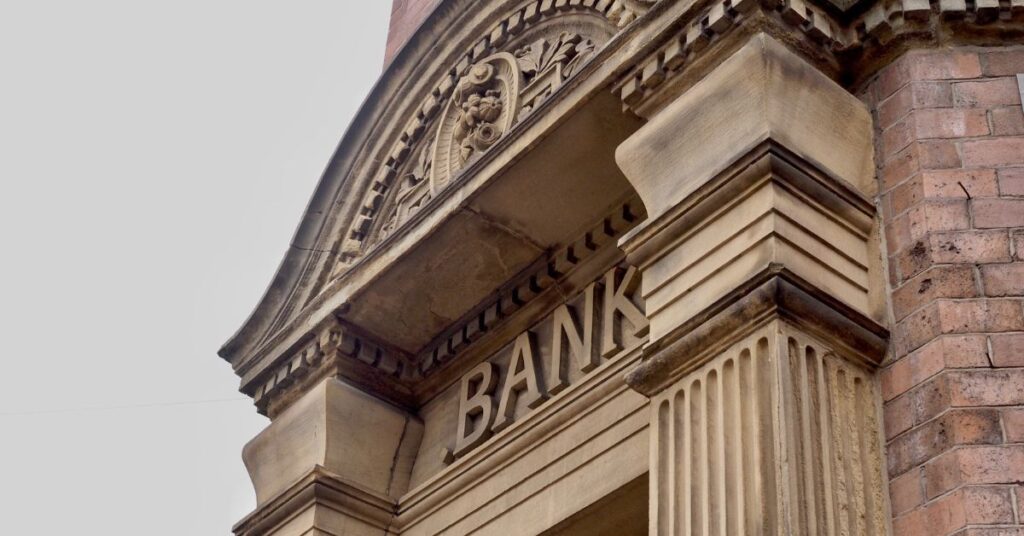Banks in Denmark are crucial to the lives of expats. In Denmark the banking system offers a secure and efficient financial system that will ease the living in Denmark. Understanding the banking landscape in Denmark is essential for expatriates seeking to manage their finances, make payments, and save for the future.
Denmark’s financial system is renowned for its stability and transparency, making it a prime choice for expats. The country has a good banking infrastructure. It is characterized by a network of modern banks, both local and international. These banks cater to the diverse financial needs of expats.
One significant aspect for expats is the availability of English-speaking staff at many Danish banks. This facilitates smooth communication and ensures that expatriates can access essential banking services without language barriers. It’s a valuable resource for newcomers looking to navigate the financial landscape.
As for the history of banks in Denmark, it has a long and storied past dating back to the early 19th century. The country’s financial sector has evolved over the years, adapting to global trends and technological advancements. Today, Denmark’s banking system ranks among the most advanced and modern in the world.
In terms of regulatory framework, the Danish financial sector is closely monitored and regulated by government authorities. This ensures the safety and security of deposits and investments. The Financial Supervisory Authority (FSA) is responsible for overseeing banks, insurance companies, and other financial institutions. This robust regulatory framework provides expats with confidence in the stability and reliability of the banking sector.
Banks in Denmark – the institutions
In the world of banks in Denmark, expats have several options when it comes to choosing the right financial institution to meet their needs. Understanding the major banks and financial institutions in Denmark is crucial for expats to make informed decisions about their finances.
One of the prominent players in Denmark’s banking sector is Danske Bank. It’s the largest bank in Denmark and offers a wide range of services. This includes online banking, which is particularly convenient for expatriates who prefer managing their finances digitally. Danske Bank provides expats with access to both personal and business accounts.
Another noteworthy institution is Nordea, a well-established Nordic bank with a strong presence in Denmark. Expats can benefit from Nordea’s international reach and a variety of banking solutions, including mortgages and investment services. Their user-friendly online banking platform makes it easy for expats to access their accounts.
Jyske Bank is a regional bank in Denmark known for its personalized approach to banking. Expats looking for a more intimate banking experience can turn to Jyske Bank for tailored financial solutions. They also offer competitive Denmark online banking services for expats who prefer digital banking convenience.
When it comes to comparison, expats should consider factors such as account fees, interest rates, and the availability of English-language support. Danske Bank, for instance, provides multilingual customer support, which can be beneficial for expats.
Nordea stands out for its international presence, making it a great choice for expats who frequently engage in cross-border transactions. Their wide array of financial products, including loans and investments, can suit various expatriate needs.
Jyske Bank’s focus on personalized service and local expertise may be appealing to expats seeking a more tailored banking experience. Additionally, their user-friendly online banking platform ensures expats can manage their finances efficiently.
Open a Bank Account in Danish Banks
As an expat settling in Denmark, one of your first steps toward financial stability is opening a personal bank account. This step-by-step guide will help you:
Step 1: Research and Choose the Right Bank
Before rushing into opening a bank account, take some time to research and compare the offerings of various banks in Denmark.
Step 2: Gather the Necessary Documents
To open a bank account, you’ll need to provide specific documents for account application and verification. These typically include a valid passport or national ID, a Danish CPR number (CPR-nummer), proof of address in Denmark, and an employment contract or proof of income.
Step 3: Visit the Bank Branch or Apply Online
Depending on your preference, you can either visit the chosen bank’s branch in person or apply online. Many banks offer user-friendly Denmark online banking options for expats, making the application process convenient.
Step 4: Fill Out the Application Form
Complete the bank’s application form, providing accurate information and attaching the necessary documents. Double-check your application for any errors or missing details.
Step 5: Attend a Bank Appointment (if required)
Some banks may request an in-person appointment for identity verification and to finalize the account opening process. During this meeting, you may need to provide additional information or clarification.
Step 6: Account Verification and Activation
Once your application is approved, the bank will verify your documents and activate your account. You will receive your account details and access to denmark online banking services.
Step 7: Manage Your New Account
Congratulations! You’ve successfully opened a bank account in Denmark. Now, you can deposit funds, make payments, and access various financial services tailored to expats’ needs.
Remember, each bank may have slightly different requirements and processes, so it’s essential to check with your chosen bank for specific details.
Different Types of Bank Accounts

When it comes to banking in Denmark, expats have various types of bank accounts to choose from. Each of these is serving different purposes based on their financial needs and goals. Understanding the differences between savings accounts, current accounts, and offshore accounts is essential for making informed decisions.
Savings Accounts:
Savings accounts are a popular choice for expats looking to set aside funds for future goals or emergencies. These accounts typically offer higher interest rates compared to current accounts. This makes them an attractive option for those who want to grow their savings over time. Expats in Denmark can benefit from savings accounts provided by major banks in Denmark, which offer the security and accessibility expats seek.
Current Accounts:
Current accounts are everyday transactional accounts used for daily expenses, bill payments, and receiving salaries. They offer easy access to funds through checks, debit cards, and online banking. Expats often find current accounts indispensable for their day-to-day financial needs. Major banks in Denmark offer a range of current account options with features like Denmark online banking for added convenience.
Offshore Accounts:
Offshore accounts are accounts held in foreign currencies, typically in a country other than Denmark. These accounts can be beneficial for expats who have financial ties or assets in their home countries or plan to make international transactions regularly. Offshore accounts can help mitigate currency exchange risks and provide access to a broader range of investment opportunities.
The choice between these account types largely depends on the individual financial goals and circumstances of expats in Denmark. Savings accounts are suitable for those looking to save and earn interest on their funds, while current accounts provide easy access for everyday transactions. Offshore accounts, on the other hand, cater to expats with international financial interests.
Currency Exchange and International Transactions
Understanding currency exchange rates and fees is crucial for expats living in Denmark who engage in international transactions. It could be sending money to family abroad or making investments in foreign currencies. Here, we’ll break down the essentials of currency exchange in Denmark and provide tips for cost-effective international money transfers and currency conversion.
Currency Exchange Rates and Fees in Denmark:
- Exchange Rates: Currency exchange rates determine the value of one currency relative to another. In Denmark, exchange rates are influenced by various factors, including economic conditions, interest rates, and geopolitical events. Expats should regularly monitor exchange rates to make informed financial decisions.
- Bank Fees: Banks in Denmark may charge fees for currency conversion and international money transfers. These fees can vary significantly between banks, so it’s essential to compare the rates and fees offered by major banks in Denmark before conducting transactions.
- Hidden Costs: Be aware of hidden costs, such as markup on exchange rates. Some financial institutions may offer less favorable exchange rates to their customers, resulting in additional expenses for expats. Always inquire about any hidden costs associated with currency exchange.
Tips for Cost-Effective International Money Transfers and Currency Conversion:
- Choose the Right Service: Select a reputable and cost-effective currency exchange service. Some banks offer specialized services for expats, including denmark online banking platforms. This provides competitive rates and lower fees for international money transfers.
- Transfer Timing: Timing is essential when transferring money internationally. Exchange rates can fluctuate daily, so consider monitoring rates and executing transfers when the rates are favorable.
- Avoid Airport and Hotel Currency Exchange: Avoid exchanging currency at airports or hotels, as they often offer less favorable rates and charge higher fees. It’s better to use bank services or reputable currency exchange offices.
- Consider Online Transfer Services: Online money transfer platforms like TransferWise (now Wise) or Revolut offer competitive exchange rates and lower fees compared to traditional banks. These platforms are user-friendly and suitable for expats.
- Use Forward Contracts: Some banks and currency exchange services offer forward contracts that allow you to lock in an exchange rate for future transactions. This can be helpful for expats planning significant international transfers.
- Diversify Currency Holdings: If you frequently engage in international transactions, consider holding multiple currencies in your accounts. This can help you avoid constant currency conversion, saving on fees and exchange rate losses.

Digital Banking in Denmark and Mobile Apps
Let’s explore the benefits of digital banking in Denmark and provide an overview of popular banking mobile apps that cater to the needs of expats.
Convenience and Efficiency of Digital Banking in Denmark:
- Accessible 24/7: One of the significant advantages of digital banking in Denmark is its accessibility round the clock. Expats can check account balances, make transfers, and pay bills anytime, anywhere through secure online platforms.
- Reduced Wait Times: Digital banking eliminates the need to visit physical bank branches, saving expats valuable time. You can complete various transactions from the comfort of your home or while on the go.
- User-Friendly Interfaces: Danish banks prioritize user experience, offering intuitive and user-friendly interfaces on their digital platforms. Expats can easily navigate through their accounts and access a wide range of services hassle-free.
- Security Features: Digital banking in Denmark comes with robust security measures, including encryption and multi-factor authentication, ensuring the safety of your financial data and transactions.
Overview of Popular Banking Mobile Apps for Expats in Denmark:
- Danske Bank Mobile App: Danske Bank, one of the major banks in Denmark, offers a highly rated mobile app for expats. It provides a seamless banking experience with features like account management, fund transfers, and bill payments. The app is available in English, making it expat-friendly.
- Nordea Mobile Banking: Nordea, another leading bank in Denmark, offers a mobile banking app that caters to expats’ needs. It allows users to monitor their accounts, transfer funds, and access investment services. The app is available in multiple languages for expatriate convenience.
- Jyske Bank Mobile Banking: Jyske Bank’s mobile banking app offers a user-friendly interface, making it a preferred choice for expats seeking simplicity in managing their finances. The app provides access to various banking services, including denmark online banking features.
- Wise (formerly TransferWise): While not a traditional bank, Wise is a popular choice among expats for international money transfers. Their mobile app simplifies currency exchange and allows users to send money internationally with competitive exchange rates and low fees.
- Revolut: Revolut is a digital banking app that appeals to expats due to its ease of use and transparent fee structure. It offers multi-currency accounts, international transfers, and spending insights, making it suitable for those with an international lifestyle.
Credit and Debit Cards
When it comes to banking in Denmark, expats have access to various types of credit and debit cards, each with its benefits and drawbacks. Understanding the options available and the pros and cons of Danish cards versus international ones is essential for expats seeking to manage their finances effectively.
Types of Credit and Debit Cards Available to Internationals in Denmark:
- Danish Credit and Debit Cards: Many major banks in Denmark for expats offer both credit and debit cards. These cards are widely accepted within the country and are convenient for everyday transactions. Danish cards often come with features like contactless payments and access to denmark online banking for easy account management.
- International Credit and Debit Cards: Expats can also use international credit and debit cards from global payment networks like Visa, Mastercard, and American Express. These cards are accepted worldwide, making them suitable for expatriates who travel frequently or have financial ties to their home countries.
Benefits of Using Danish Cards:
- Local Acceptance: Danish cards are readily accepted in most local businesses, including shops, restaurants, and public transportation. They are an excellent choice for everyday expenses and ease of use.
- Access to Local Services: Having a Danish card may grant expats access to additional services, such as denmark online banking, offered by local banks. This can simplify financial management and provide expats with a range of options.
Drawbacks of Using Danish Cards:
- Limited International Acceptance: Danish cards may not be as widely accepted internationally as cards from global payment networks. Expats traveling or making international purchases may encounter limitations.
- Currency Conversion Fees: When using Danish cards for transactions in foreign currencies, expats may incur currency conversion fees, which can add to the cost of international spending.
Benefits of Using International Cards:
- Global Acceptance: International credit and debit cards are accepted worldwide, making them an ideal choice for expats who frequently travel or have international financial commitments.
- Currency Flexibility: International cards often provide the flexibility to make payments in multiple currencies, helping expats save on currency conversion fees.
Drawbacks of Using International Cards:
- Foreign Transaction Fees: Some international cards may charge foreign transaction fees for purchases made in foreign currencies, which can increase the overall cost of transactions.
- Limited Access to Local Services: Expats using international cards may have limited access to specific local banking services or benefits offered by Danish banks.


